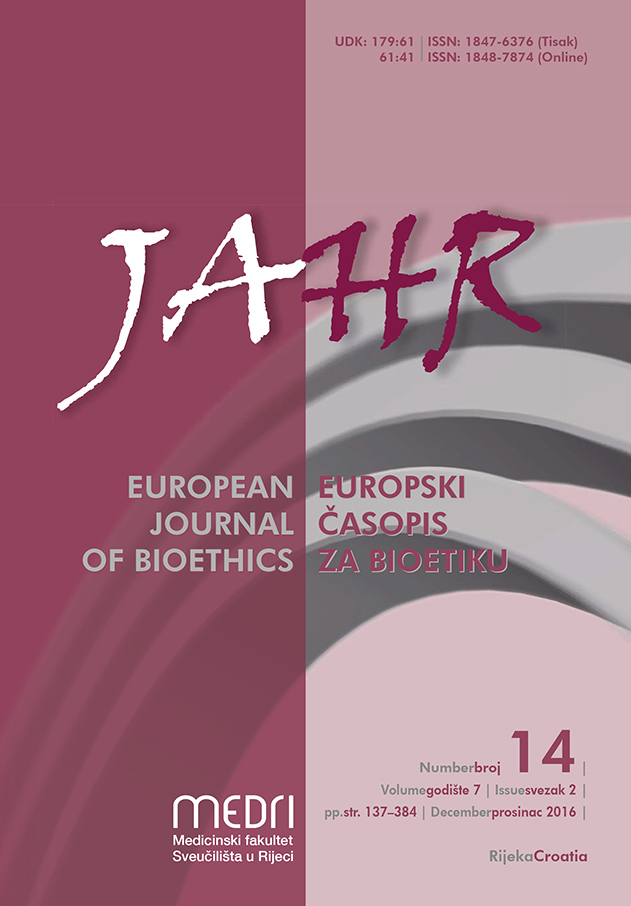Euthanasia and Assisted Suicide: A Cinematographic Approach to the Death that Hurts the Most
Keywords:
euthanasia, assisted suicide, films, subjectivityAbstract
The aim of this article is to present two different ways in which bioethical issues, like
euthanasia and medically assisted suicide, can be analyzed. On the one hand, vignettes
and case studies serve to reflect upon the moral and normative codes that health and legal
practitioners abide by nowadays. In this way, we present a vignette concerning the death of
French psychoanalyst, Jacques Lacan, and a case study featured in UNESCO’s Casebook on
Informed Consent. However, little does this approach tell us about the singularity of the actors
involved in those stories and their subjective responsibility in the end-of-life decisions they
make. Thus, we propose that films are an excellent tool for gaining a better understanding
on those aspects, which supplement the moral and legal discussions that have long revolved
around euthanasia. Regarding this second approach, we analyze the films You Don’t Know
Jack, The Sea Inside, and Wit
Downloads
Published
Issue
Section
License
Authors who publish with this journal agree to the following terms:
- Authors retain copyright and grant the journal right of first publication with the work simultaneously licensed under a Creative Commons Attribution License that allows others to share the work with an acknowledgement of the work's authorship and initial publication in this journal.
- Authors are able to enter into separate, additional contractual arrangements for the non-exclusive distribution of the journal's published version of the work (e.g., post it to an institutional repository or publish it in a book), with an acknowledgement of its initial publication in this journal.
- Authors are permitted and encouraged to post their work online (e.g., in institutional repositories or on their website) prior to and during the submission process, as it can lead to productive exchanges, as well as earlier and greater citation of published work (See The Effect of Open Access).



